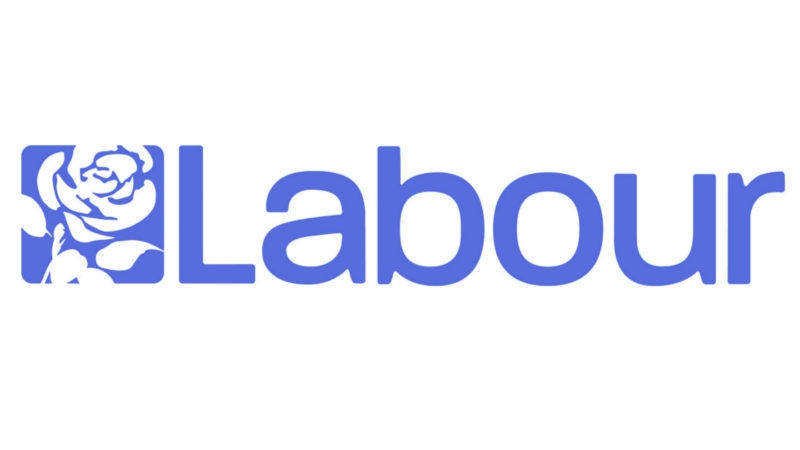
Sabrina Huck argued in a LabourList piece last week that the Corbyn movement is failing to develop a coherent theoretical politics to define its identity and its aims. For too long, she writes, Labour has avoided questions of identity and belonging, and this twin failure has left an intellectual vacuum, which is now being ‘exploited’ by Blue Labour thinkers. Unless the movement urgently builds its own intellectually coherent, theoretical base it will become a hollow movement overwhelmed by ‘dangerous currents’ and ‘reactionary forces’.
What exactly is Blue Labour that it can cause such melodrama? The Twitter sphere is incoherent on the subject. And only a few years ago the Corbyn movement was galvanising national politics. It commands the Labour Party and an enormous membership. Why has it no intellectual or political coherence?
Blue Labour has no membership and no formal organisation. It is politically marginal within the party. Despite this, its ideas have grown considerably in influence. Much of the reason is that its politics are mainstream in the country. For some years, there has been a political majority for a radical approach to the economy and a socially conservative approach to society, culture, national defence and security. Neither major political party can capture this political paradox.
Blue Labour politics can be described as small c conservative and socialist. It is internationalist and European. However, it is not globalist, nor universalist, nor cosmopolitan. People have a culture, language and history. We are social and parochial beings with homes and attachments to places. Our membership of specific solidarities is our entry point into humanity.
The labour movement has been a defence against the power of capital and the state. Resistance to the commodification of labour and its extension into society is part of our democratic modernity. Blue Labour is part of this tradition. It began as a challenge to New Labour’s liberal market economics, support for financial capital, uncritical embrace of globalisation and irresponsible approach to large-scale immigration. Labour had moved from being a party of the people to a ‘progressive’ manager of capitalism.
The growing dominance of liberalism subordinated democracy to the economic realm. Politics became managerial and political conflict was reduced to technical problems and legal procedure. But justice cannot be achieved simply by the procedures of a legal order, by bureaucratic state administration, or by the profit motive of the market. Legal rights are always a political achievement and they must be backed up by a democratic political community.
So Blue Labour believes that the democratic nation and its rule of law is the best means of safeguarding our rights and freedoms. And the nation state is still the best political unit to manage globalisation in the interests of a democratic polity. A democratic nation is defined by its sovereignty. Sovereignty is the source in time and place of the agency that constitutes a political system and underlying this agency is a ‘we’ – a community of people bound together by reciprocity.
For Blue Labour, the ‘we’ is not homogenous but a plural that must be brought together in a democratic politics of the common good. Different groups and classes that constitute a polity have interests that require negotiation to explore the possibility of a common good. Sometimes conflict takes the form of class, sometimes of religious and ethnic communities. Consensus has to be worked for. It requires political skill to build bridges. It is argumentative and it can be angry. Conflict and difference will always be present. Issues get decided in a temporal, revisable way through democratic decision. The only rule is that you have to do it again.
Building a broad political coalition for a majority Labour government requires this kind of democratic politics. It will include people of a more conservative disposition than liberalism is comfortable with. Many of the responses to Sabrina’s article show that some parts of the left are unwilling to accept this: they will only take part if everybody first agrees with them.
The problem with a politics that opposes borders and the idea of the nation is that it ends up as an abstraction. It cannot develop an alternative story of democratic nationhood, nor one about belonging, nor about international relations. It ends up championing a global monoculture that is neither here nor there and is only of any benefit to a class of mobile professionals. In rejecting the particular and the historical in favour of the abstract and universal, it loses any conception of a democratic polity in which mutual obligations guarantee rights. In calling for the defence of all workers, it ends up defending none.
In response to this political failure, Sabrina suggests that the Corbyn movement should champion economic equality along with socialist values such as class unity, internationalism, feminism and multiculturalism. That’s fine, but people want decent jobs and wages, good homes in safe and pleasant neighbourhoods, enough money to take a holiday, schools that give their children a good start in life, and a sense of security. What matters to the great majority is their family, fairness, decency, working hard and a society in which rights are matched by obligations. They want a country to feel good about and a government that they feel is their own, and which they can trust to safeguard our national defence and security. All in all, Blue Corbynism seems a pointless controversy.




More from LabourList
‘Labour won’t stop the far right by changing leaders — only by proving what the left can deliver’
‘Cutting Welsh university funding would be economic vandalism, not reform’
Sadiq Khan signals he will stand for a fourth term as London Mayor